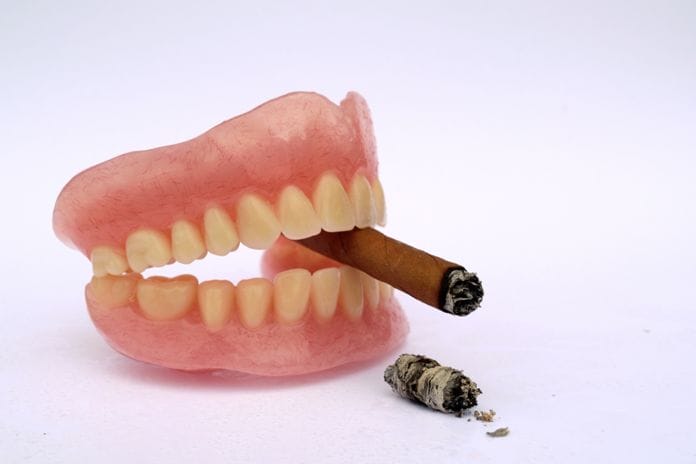In a study released January 16, 2018, from the Health Sciences Campus at Tufts University, researchers are reporting a noticeable connection between gum disease and incidents of cancer.
Connecting the Dots
This study came about through the collaborative efforts between two epidemiologists, Dominique Michaud (Tufts University School of Medicine) and Elizabeth Platz (Johns Hopkins Bloomberg School of Public Health and Kimmel Cancer Center). Additional authors contributing to this study include Alexandra Peacock-Villada (Tufts University School of Dental Medicine), Jiayun Lu, John Barber, and Corinne Joshu (Johns Hopkins), James Beck and Steven Offenbacher (University of North Carolina), and Anna Prizment (University of Minnesota).
They worked with data compiled from thorough dental examinations of 7,466 participants (in the Atherosclerosis Risk in Communities study, also referred to as ARIC) located from areas as diverse as North Carolina, Maryland, Mississippi, and Minnesota, and spanning over a period of time ranging from the 1990’s up to 2012. Included in the collection of data were both African-American and Caucasian participants.
Due to the fact that the ARIC study regularly performed professional dental examinations rather than relying upon self-reporting by the participants, the evidence gathered from the data is highly reliable.
It was during the period of following up on these subjects that it was revealed that 1,648 new diagnoses of cancer were revealed, which represents 22% of those involved in this long-term study.
Periodontal Disease Increases Cancer Risks
Even more revealing was the connection between the degree of periodontitis and incidents of cancer. For instance, comparing the results of participants with higher levels of periodontitis against those with either mild or no periodontitis at their baseline showed a 24 percent higher tendency towards developing a form of cancer.
Following this line of reasoning, the researchers then studied the results of those participants with extreme levels of periodontitis. Those participants who have lost all of their teeth due to extreme conditions of advanced gum disease showed an astonishing 28 percent likelihood of cancer.
Lung cancer proved to be the highest risk assessed, with colorectal cancer coming in second. While studying selected subgroup analyses, the researchers learned that participants registering the highest degree of advanced periodontal disease doubled their risk of lung cancer.
The Effect of Smoking
The researchers took into account the clear connection between smoking and various types of cancer. There has been a long-established relationship between smoking, lung and colon cancer, and even the appearance of periodontal disease. This new study has provided further and direct evidence of the impact of smoking and poor dental care on the health of individuals.
It was further determined that those studied who were missing teeth at baseline were 80 percent more likely to find themselves facing colon cancer. Establishing further evidence that smoking encourages cancer growth, this risk doubled for those participants who were smokers as well as toothless.
Cancers Not Connected to Periodontal Conditions
In addition to studying lung and colorectal cancers, the researchers also sought to find links between periodontitis and breast, prostate, or blood/lymphatic cancer.
At the conclusion of the study, no noticeable connection could be found between poor dental hygiene and these types of cancer, particularly among the African-Americans studied.
A Case for Comprehensive Dental Health Insurance
One logical conclusion that Michaud and Platz reached was to emphasize the necessity for expanding and improving dental health insurance for all Americans. As Platz stated, “Knowing more about the risks that come about with periodontal disease might give more support to having dental insurance in the way that we should be offering health insurance to everyone.”
Additional work and studies are recommended. Previous studies have shown that periodontitis can increase the risk of cancer, but much more work must be done to uncover the actual mechanism involved in creating a connection between these two common diseases.
Perhaps most encouraging is the fact that better dental care, in addition to smarter health decisions (such as not or quitting smoking), can go far in preventing these diseases and the suffering they cause in the future.
Before you leave, check out the Today’s RDH self-study CE courses. All courses are peer-reviewed and non-sponsored to focus solely on high-quality education. Click here now.
Listen to the Today’s RDH Dental Hygiene Podcast Below:
NOW READ: Ground-Breaking Perio Vaccine may Begin Trials in 2018











